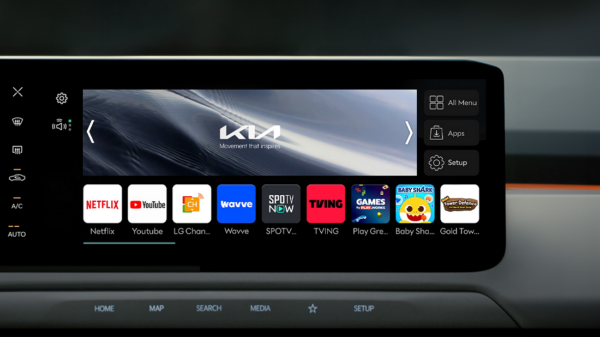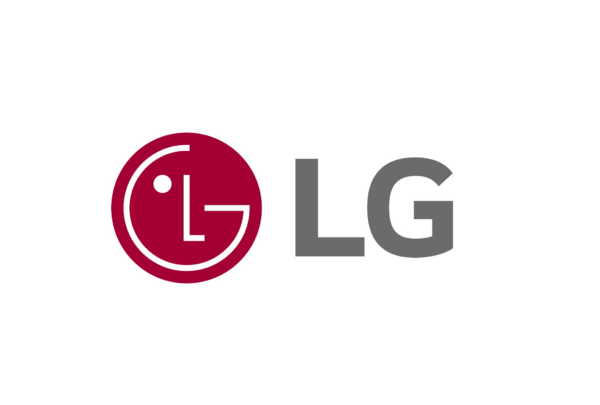Samsung Electronics recently launched its new television lineup for 2024, powered by
cutting-edge AI technology that delivers stunning visuals and redefines home entertainment. Reviewers worldwide were given early access to Samsung’s newest products and it is apparent that the 2024 lineup is generating excitement among industry professionals.
▲Samsung’s 2024 Neo QLED 8K, Neo QLED 4K and OLED TVs received high marks from various professional reviewers
Samsung’s 2024 TV and audio lineup is pushing boundaries, offering state-of-the-art features and innovations that promise an unmatched viewing experience. Below are some key highlights of the early reviews.
List of Featured Articles
[Neo QLED 8K]
Expert Reviews,
Newsweek,
Trusted Reviews,
What Hi-Fi?
[Neo QLED 4K]
Expert Reviews
[OLED]
Newsweek,
Sound & Vision,
Techaeris,
Trusted Reviews
[Music Frame]
Techlicious
[HW-Q900D]
Techaeris,
Newsweek
[HW-S800D]
Techlicious
Elevate Your Viewing Experience With NQ8 AI Gen3 Processor
Samsung’s
2024 Neo QLED 8K is the full package, including improved 8K upscaling powered by AI for lifelike picture quality. This year, Samsung introduced its latest and most innovative processor yet, the NQ8 AI Gen3 Processor. Housed within the 2024 Neo QLED 8K QN900D, it optimizes both picture and sound to deliver the ultimate 8K experience with a neural processing unit twice as fast as that of its predecessor. The number of neural networks has also increased eightfold, so that no matter what consumers watch they can experience levels of detail and clarity near native 8K content.
▲Key review quotes regarding Samsung Neo QLED 8K from Newsweek, Trusted Reviews, Expert Reviews and What Hi-Fi? in 2024
Outlets such as
Expert Reviews praised the
QN900D’s processing power, saying, “The new NQ8 AI Gen 3 processor brings its 512 neural networks into play, adding a previously unseen level of imaging potential.” The outlet also highlighted its 8K AI Upscaling capabilities, saying, “This AI-enhanced powerhouse draws out an incredible level of detail regardless of the native resolution and flawlessly upscales anything below 8K to deliver finely rendered images free of any banding or compression artefacts.”
Trusted Reviews also commended the upscaling capabilities of the Neo QLED 8K QN900D, saying, “The amount of detail the upscaler is able to add to already detailed parts of 4K pictures is astonishing; 4K really becomes 8K before your very eyes.” The review also stated, “Its dazzling brightness, remarkable LCD contrast, voluminous color and ground-breaking upscaling processing prove that you don’t need 8K content to benefit from an 8K TV.”
Newsweek marked Neo QLED 8K
QN800D an “Editor’s Choice” for the outlet, highlighting the benefits this processor lends to gamers and stating, “The gaming performance is great with the benefit of upscaling, high refresh rates and an AI-powered game mode.”
What Hi-Fi? also chimed in on the quality of Neo QLED 8K QN900D, saying, “Its picture quality improves considerably in just about every way on its predecessor, crucially leaving clear blue brightness water between it and 2024’s top OLED TVs and rewriting the upscaling rule book to remind us in no uncertain terms that 8K TVs don’t have to be fed 8K content to make a difference.” (75-inch QN900D, What Hi-Fi?, 03/2024)
Neo QLED 4K With Vivid Realism and Dynamic Contrast
Joining the 2024 Neo QLED 8K is a refreshed lineup of
Neo QLED 4K TVs that is catching reviewers’ attention for its elevated features and viewing experience, powered by the NQ4 AI Gen2 Processor.
Expert Reviews commended the AI-powered TV Neo QLED 4K QN95D, saying, “The new processor helps deliver exceptional AI picture, sound and optimization features, the upscaling and image processing are excellent and add value, as does the equally impressive AI-enhanced motion handling.”
This year’s Neo QLED 4K continues to deliver the ultimate 4K experience, enhanced by features such as Real Depth Enhancer Pro as well as Quantum Matrix Technology, with
Expert Reviews noting, “The Samsung QN95D is a fantastic 4K TV that retains the Mini LED backlighting and class-leading local dimming of last year but adds cutting-edge image processing to produce some of the best SDR and HDR pictures you’ll see on a high-end television.”
Stunning Brightness on AI-Powered OLED
Samsung’s 2024 OLED TV portfolio, such as the S95D, offers high levels of detail, high-frame rates and intensely vibrant video display in sizes up to an ultra-large 77-inches, building on the legacy of its predecessor.
This year’s OLED received recognition from several reviewers including
Newsweek, which awarded Samsung OLED
S95D an “Editor’s Choice” distinction.
Techaeris also praised the S95D, noting, “Overall, the Samsung S95D is the best performing OLED TV that I’ve used this year,” while
Trusted Reviews commented that “The QE65S95D is for me Samsung’s best looking OLED TV yet, building a gorgeously futuristic feel around its remarkable slimness.”
▲Key review quotes regarding Samsung OLED from Techaeris and Sound & Vision in 2024
Samsung OLED leverages the NQ4 AI Gen2 Processor, the same formidable powerhouse behind the Neo QLED 4K lineup. Samsung’s OLED TVs boast features like the Real Depth Enhancer and OLED HDR Pro, bringing picture quality to new heights.
Techaeris rated the S95D with an “Editor’s Choice” distinction and commended Samsung’s upscaling technology by saying, “Powered by Samsung’s NQ4 AI Gen2 processor, Samsung’s AI upscaling has always been one of the best.”
Samsung OLED S95D is 20% brighter than previous models, with deep and rich blacks and AI-enhanced color accuracy applauded by outlets such as
Trusted Reviews which said, “Where the 65S95D’s extra brightness really counts is with its contrast performance, as bright highlights of both dark and light images radiate with an intensity I’ve never seen before.”
Sound & Vision additionally noted, “This year, Samsung has improved color mapping. It uses AI technology to analyze and present more natural-appearing colors, particularly in skin tone subtleties.”
Samsung’s new OLED Glare Free technology preserves brightness and color accuracy while reducing reflections and maintaining image sharpness to ensure an immersive viewing experience, even in daylight. In its review,
Sound & Vision noted, “With the enhanced brightness levels and the stunning matte screen design, the Samsung QN77S95D is among the best-looking and highest-performing OLED televisions tested.” The outlet also awarded the TV with a “Top Pick” distinction.
With features such as Motion Xcelerator 144Hz ensuring smooth motion and quick response rates, Samsung OLED is a gamer’s delight. Sports fans and gamers can enjoy seamless motion and crystal-clear action on their screens.
Sound & Vision praised the OLED for this by saying in its review that “When not in use for movies or TV, the Samsung S95D is an exceptional 4K OLED gaming display.”
Newsweek also commended the device for its gaming features and noted that “This OLED is perfect for movies and part of an epic gaming setup.”
Create an Immersive Audio Sanctuary in Your Home
Samsung’s 2024 audio lineup offers newly updated models that are fortified with advanced AI algorithms and have garnered significant acclaim for their captivating sound quality and intentionally sleek designs.
New this year is Samsung’s
Music Frame, a customizable speaker that provides rich sound and seamless connectivity. Operating as a standalone wireless speaker or paired with a Samsung TV and soundbar, it augments bass and offers high-quality surround sound.
Techlicious noted in its review that “The Samsung Music Frame is an innovative and stylish addition to the smart speaker market, successfully combining the functionality of a wireless speaker with the aesthetic appeal of a customizable photo frame,” and gave the device an “Editor’s Choice” distinction.
▲Samsung’s 2024 Music Frame and Soundbar impressed reviewers at Techlicious and Newsweek
At the top of the soundbar lineup is the
HW-Q990D, which analyzes audio and uses AI to optimize sound offering the perfect experience across a wide range of content at the comfort at your own home, as
Techaeris noted, “Once everything is in place, you don’t need to worry about anything else but finding the right movie to experience the fullness of this soundbar.” Similarly,
Newsweek noted, “With 22 speakers and a delightful combination of up-firing and side-firing, the HW-Q990D is a wonderful way to immerse yourself in Dolby Atmos while watching movies or gaming and great surround sound for sports.”
Newsweek also gave the device an “Editor’s Choice” distinction and rounded out the review by stating, “The Samsung Q990D is the best Dolby Atmos soundbar you can buy in 2024.”
The ultra-thin
HW-S800D brings consumers an enhanced listening experience that is designed to fit seamlessly into any space at just 1.6-inches deep.
Techlicious awarded the device with an “Editor’s Choice” distinction, adding that it’s the “Perfect choice for anyone looking to upgrade their TV’s sound without sacrificing style or space,” and “The incredibly thin S800D makes movie-watching immersive and listening to music a joy.”
Samsung continues to redefine the world of home entertainment, reinforcing its legacy as
the global leader in the TV market for 18 years and
the global leader in soundbars for a decade.
To learn more about Samsung’s 2024 TV lineup, visit
https://www.samsung.com.







 ) is still working! But the most common one, period, is not working? Just started happening a couple of days ago. Anyone else notice that? I use the voice typing quite a bit here.
) is still working! But the most common one, period, is not working? Just started happening a couple of days ago. Anyone else notice that? I use the voice typing quite a bit here. 

















